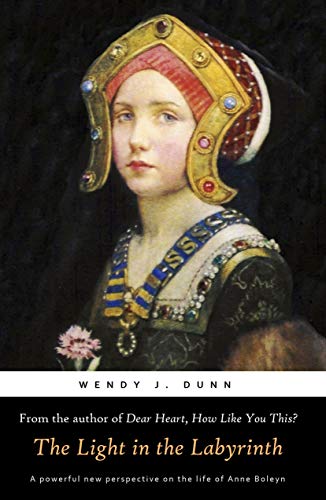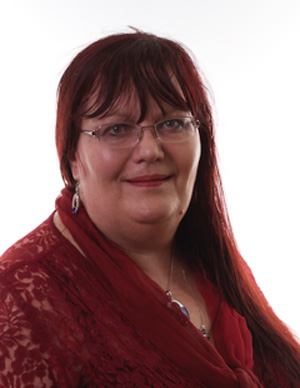December 16
Thank you to historical novelist Wendy J. Dunn for today’s Advent Calendar treat. Wendy is the author of The Light in the Labyrinth and Falling Pomegranate Seeds, among others. Over to Wendy…
![]()

The following is from the first draft of The Light in the Labyrinth, my second published Tudor novel – when I experimented with an angel’s voice as a way of beginning each chapter. I decided to kill my angel in later drafts, but I am now working on a project which includes an angel’s voice. Here is my first attempt in finding my angel’s voice.
Although only breath, words which I command are immortal – Sappho.
Do you see me? Does my light blaze for you as it once did for them? I am flying through white light. Colours break apart – rainbow shafts go in different paths. I wing to a time and place when no one doubts angels walk amongst mortals.
Light reflects from the snow, and my eyes burn and water. Blinded for a moment, I stumble, flinging out my arms for balance, my hands held out as if in supplication. Something touches my palm. Reminded of a gentle caress, I open my eyes – on my palm, a feather. A token – no – the gift bestowed upon me by others of my kind; the light I bear has facets without count. I bow my head in acceptance, knowing my purpose, my reason for being here. My breath stirs its fragile plumes. I close my hand upon it.
My wings stretch out, and I take flight again, looking down on a walled city surrounded by snow-clad fields. There are unmade roads, rivers and streams, valleys and, far, far away, white-topped mountains; the all-embracing view stretches out without end. I am a guardian of this place, one of many. I dream its dreams and give voice to the silenced. I bring you word from my people. I will not let them be forgotten. I am their witness, their truthsayer.
The wind carries me towards Hampton Court Palace, over the patchwork of fields; green and brown earth peeps through the winter-shroud of heavy snow. I fly to a chamber at the palace – there Katherine Carey sleeps, and dreams. She is my Kate - the one I guide. Feverish, she rolls in the wide bed, her arm above her head, and sighs. Her frail hand, blemished with aged spots, opens and closes. Disturbed from her slumber on the other side of the bed, Lettice, Kate’s daughter, gazes at her mother. Tears begin to fall down her face.
Kate moans. “No, no, no,” she murmurs in her sleep.
I wing to a different winter. Bare, stark trees tremble in the cold wind, their shadows quivering upon the palace’s facade. A glassless window in one of the upper chambers catches my eye. Light as a feather, I fly to the nearest tree and land on its highest branch. The branch is strong and rough under my naked feet. Like a dancer, I glide towards the window and leap; I fly into the dim chamber, tearing gossamer webs as I pass through. Alighting on the floor, I move forward with nimble steps and shake out the plumage of my wings, resenting my inability to soar high. What is the point of wings if you cannot have the sky? Confined in this gallery, all I can do is short bursts of flight, and barely that; it keeps me on edge, restricted. Caged. But I remind myself why I am here. A human friend needs me.
Her portrait hangs on the wall. Stepping closer to it, light from my being illuminates the room. I study Kate’s portrait – a woman forever frozen in time – past, now, future combined.
Kate is young, in the fullest of her beauty, big-bellied with child. Contentment is hers. Surreptitiously, she looks at me, as if she hides a secret. No – not hides, but protects it, like her long-fingered hand now protects her unborn child. I study her more closely. Her eyes, her smile, her very stance – there is something about her that both challenges and invites. Kate looks certain of herself – a woman who knows who she is and takes pride in that knowledge. She looks at you as if saying Sappho’s words: I dream that I’m home. Because she is home. She is a woman who knows her hearth, her heart. She knows herself.
But how did Kate arrive at this assurance? What did she dream of as a girl? No girl is certain then – especially of the road to follow after.
There is another portrait on the wall. I go to stand before it, studying the pale, fair-haired, pretty woman who smiles gently. Despite eyes full of dreams, she does not look my way, but averts her face as if she wishes to hide her sorrow.
But she cannot hide her hope; it is in her look, a look that says, one day will be better than this. I can only be a victim if I take upon myself that mantle.
Could her hope be because of her children? Was she thinking of them when she sat for this portrait? For all children embody hope.
Like Demeter of old, this mother would venture into Hades if it meant saving her child. She does not know yet that she cannot save them, or protect them; she does not know her children must face Hades alone. All who live must eat the seven seeds from the pomegranate – death, birth, sorrow, joy, love, hate, and hope.
A mother’s tears are of no use then; a mother’s tears fall unnoticed.
I wing back to Kate at the end of her life. She sleeps at last, her illness relenting and giving her a moment of peace. She rolls and murmurs, a sweet smile settling on her face. She dreams of Francis, not the balding, ageing husband she knows now, but the young and handsome man she first met when she was not even fourteen. She dreams of the day when, at last, he told her he loved her, so long ago.
In her dream, the wind toys with the meadow’s knee-high grass, brushing it against her body. She is first alone, but then she sees Francis coming towards her. In his hand, he holds a posy: violets, daisies, lilies, marigolds, and the first wild flowers of spring: purple ragged robin and vetch, golden yellow agrimony and trefoil.
Francis stands before her, the lowering sun lighting him up from behind and blinding her for a moment. She blinks and then sees his smile. He offers her the flowers – a sacred offering she accepts. At last, in his arms, she lifts her face for his kiss. Flowers crush between them the sweet scent of spring. She laughs, steps out from his embrace, and raises the posy to her face. Flower petals open, as to dayspring, and unfurl to children’s faces. Many, many children. The wind gathers strength and blows all around them.
Listen. Do you hear them? Do you hear my people? Do you hear the echo of their voices from long ago? I hear them – I hear them sing. I sing too. I will not let them be forgotten.
![]()

Wendy J. Dunn is an Australian writer who has been obsessed by Anne Boleyn and Tudor History since she was ten-years-old. She is the author of two Anne Boleyn novels: Dear Heart, How Like You This?, the winner of the 2003 Glyph Fiction Award and 2004 runner up in the Eric Hoffer Award for Commercial Fiction, and The Light in the Labyrinth, her first young adult novel. Wendy's third novel, Falling Pomegranate Seeds: The Duty of Daughters, is the first in a series exploring the life of Katherine of Aragon.
While she continues to have a very close and spooky relationship with Sir Thomas Wyatt, the elder, serendipity of life now leaves her no longer wondering if she has been channeling Anne Boleyn and Sir Tom for years in her writing, but considering the possibility of ancestral memory. Her own family tree reveals the intriguing fact that her ancestors – possibly over three generations – had purchased land from both the Boleyn and Wyatt families to build up their own holdings. It seems very likely Wendy’s ancestors knew the Wyatts and Boleyns personally.
Born in Melbourne, Australia, Wendy is married and the mother of three sons and one daughter—named after a certain Tudor queen, surprisingly, not Anne.
Gaining her Doctorate of Philosophy (Writing) from Swinburne University in 2014, Wendy tutors at Swinburne University in their Master of Arts (Writing) program.